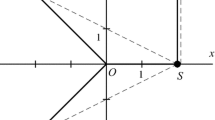3. Summary
This essay considers a general class of collective decision problems that may be represented as simple collective decision games. This analysis departs from the emphasis of the earlier literature on simple cooperative games by giving special attention to situations in which blocking coalitions are possible. We define a procedure for constructing the core of such games. We establish results demonstrating that, in simple games in which blocking coalitions are possible, the relative attractiveness of the no-decision or status quo outcome delimits the core. We prove theorems specifying necessary and sufficient conditions for any simple collective decision game to possess a nonempty core and for the status quo to belong to the core. The last theorem in this essay has special significance for solution theory about simple collective decision games. Any point in the core has a claim for stability if that point somehow becomes the tentative outcome of negotiations. But, mathematically, the core is a static equilibrium concept that, as such, does not specify a process leading to any feasible alternative as the tentative outcome. However, the status quo is the natural starting point of negotiations in collective decision making. Therefore, one can make a special claim for the stability of the status quo if it belongs to the core.
Similar content being viewed by others
REFERENCES
Debreu, G. (1959). Theory of value. New York: Wiley.
Greenberg, J. (1979). Consistent majority rules over compact sets of alternatives. Econometrica 47: 627–736.
Laing, J. D., Nakabayashi, S., and Slotznick, B. (1980). Blocking coalitions, the status quo, and the core of simple collective decision games. Fels Discussion Paper No. 148, School of Public and Urban Policy, University of Pennsylvania. Mimeo.
Laing, J. D., and Olmsted, S. (1978). An experimental and game-theoretic study of committees. In P. C. Ordeshook (Ed.), Game theory and political science, 215–281. New York: NYU Press.
Luce, R. D., and Raiffa, H. (1957). Games and decisions. New York: Wiley.
McKelvey, R. D., Ordeshook, P. C., and Winer, M. (1978). The competitive solution for n-person games without transferable utility, with an application to committee games. American Political Science Review 72: 599–615.
Romer, T., and Rosenthal, H. (1979). Bureaucrats versus voters: On the political economy of resource allocation by direct democracy. Quarterly Journal of Economics 93: 563–587.
Shapley, L. S. (1962). Simple games: An outline of the descriptive theory. Behavioral Science 7: 59–66.
Author information
Authors and Affiliations
Additional information
This essay, a condensation of Laing, Nakabayashi, and Slotznick (1980), reports some results from a project supported by the National Science Foundation, grant SOC 78-26105. A preliminary version was presented to the Public Choice Society, San Francisco, March 12–14, 1980. We thank Robin Forman for two useful proofs, Peter H. Aranson, Howard Rosenthal, Kriss A. Sjoblom, and anonymous referees for thoughtful comments, Douglas H. Blair for calling Greenberg's (1979) important results to our attention, and Patricia Cook for typing the manuscript.
Rights and permissions
About this article
Cite this article
Laing, J.D., Nakabayashi, S. & Slotznick, B. Winners, blockers, and the status quo: Simple collective decision games and the core. Public Choice 40, 263–279 (1983). https://doi.org/10.1007/BF00114523
Issue Date:
DOI: https://doi.org/10.1007/BF00114523




